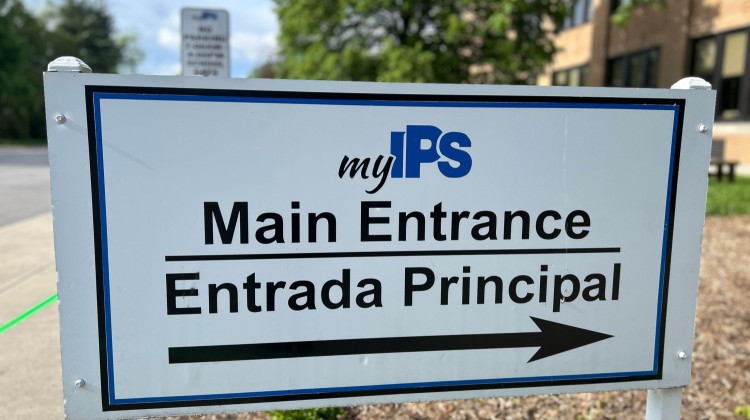
State lawmakers created the Indianapolis Local Education Alliance to make recommendations on how Indianapolis Public Schools and charter schools should be governed together.
Eric Weddle / WFYIUpdated Wednesday, Aug 20, 9:37 p.m.
Parents, educators and students affiliated with the longtime advocacy group Stand for Children Indiana are proposing sweeping changes to how Indianapolis schools are governed.
Around 42,000 students attend traditional, charter or innovation schools within the Indianapolis Public Schools district boundaries. The plan, released today, calls for a revamped IPS board with authority over all of them.
It also urges moving traditional IPS schools toward a governance model in which each has its own board, similar to how charter schools operate.
The proposal is directed at the Indianapolis Local Education Alliance, the state-created group chaired by Mayor Joe Hogsett. The plan aligns closely with legislation that requires the alliance to recommend how IPS and charter schools should be governed, ways to streamline the district’s central office and how to handle future property-tax referendums.
The alliance must submit recommendations on those and other topics to lawmakers by the end of the year.
The goal, the advocates say, is to replace what they describe as a fractured system with one accountability framework for every school.
“I think now is the right time to make changes in our educational system,” said Bony Georges, an IPS math teacher at H. W. Longfellow Middle School and one of the plan’s 11 co-authors. “The society that we want in 20 years, the society that we want in 40 years, would be determined by the quality of education. So that’s why it’s not a debate about charter schools. It’s not a debate about IPS.”
Charter schools are publicly funded and governed by nonprofit boards. Innovation schools, most of which are charters, operate with autonomy while partnering with IPS for facilities or services.
Late Wednesday, IPS superintendent Aleesia Johnson issued a statement in response to the proposal. Johnson is a memebr of ILEA.
“Community voice is important as the Indianapolis Local Education Alliance works to make recommendations that will shape our city’s future educational structure and offerings, and I appreciate the work that the eleven members of this group did to arrive at this input,” Johnson said. “I commit to fully reviewing the report alongside all other feedback we receive from our community.”
Here’s a summary of the proposal:
1. Unified oversight
A newly configured IPS board, made up of elected members and appointees chosen by the mayor's Office of Education Innovation, would oversee all schools within district boundaries. The board’s responsibilities would include high-level decisions such as whether to open and close schools, approve school budgets and pursue property-tax referendums. The board currently has seven elected members.
The proposal would make the IPS board the only charter authorizer within the district. Currently, authorizers across the state can approve new schools in the IPS boundaries.
More than 40 traditional IPS schools would gradually shift to an autonomous governance model with their own local boards.
“… not every school needs to be a charter, but each school should have its own board,” according to the document. “That board should include community members and parents.”
The plan does not address whether educators at those schools would work for IPS or nonprofits. It also does not explain how collective bargaining agreements with IPS teachers might be affected.
2. Transportation for every school
The plan calls for requiring every school within IPS boundaries to provide student transportation. Currently, only some charter and innovation schools provide busing.
Under the proposal, the IPS central office would coordinate routes and control start and pick-up times to ensure efficiency.
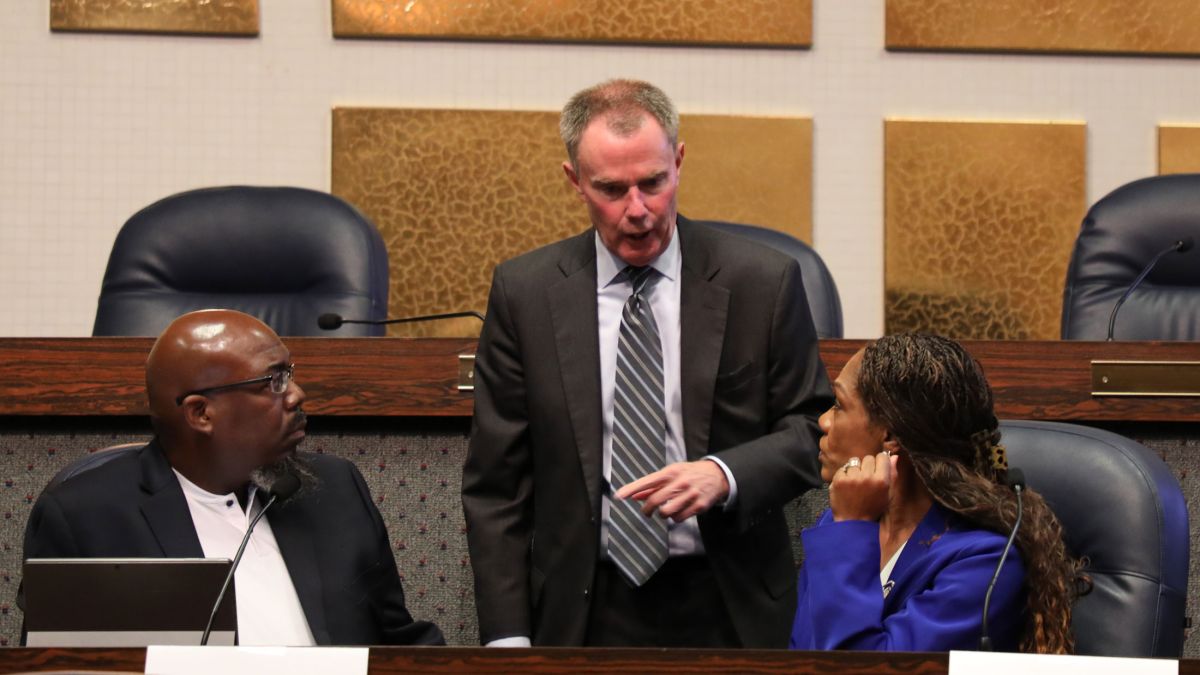
3. Stronger accountability
The plan calls for a new accountability system for all schools in IPS boundaries and authority for the board to close schools that are “not getting results.”
The framework would use “multiple measures” of student success, not only test scores, and allow time for schools to improve before sanctions are considered.
The system would also guide decisions about facilities, with priority given to school models that data shows are producing strong results. Stand and its members have long advocated for IPS to partner with local charter schools that demonstrate academic success for Black, Brown and low-income students.
4. Reimagining the central office
The plan recommends narrowing the IPS central office’s role to essential functions in a system of autonomous schools and identifying positions that are no longer needed or cost-effective. It also calls for greater transparency in how future referendum funds are used.
Competing priorities
This all follows a highly contentious legislative session, when lawmakers even considered dissolving IPS. Debates over how much local funds go to district schools, transportation sharing and access to underused school buildings pitted traditional and charter school advocates against each other, with disputes often spilling from social media into public meetings.
Nearly 60 charter schools operate within IPS boundaries, each authorized by different entities and run by independent boards. Some have formal partnerships with IPS and others outside of the district’s oversight. About 40% of students who live in the district attend charters.
The growth of charter schools has fueled competing priorities for the future of education in Indianapolis. Stand for Children Indiana has long advocated for charter schools and expanded school choice. The group has financially supported campaigns for IPS board candidates and organized families behind the district’s past three successful property-tax referendums. It also played a leading role in lobbying for the state’s new reading law that requires schools to adopt curricula aligned with the science of reading.
Stand has pushed for Indianapolis Public Schools and other traditional districts to share local property-tax funding with charter schools. Under a new law, districts will be required to share property taxes beginning in 2028.
But Stand’s vision is not universally embraced. The IPS Parent Council is one of several groups that argue the elected IPS board should remain the sole governing authority and they want a moratorium on new charter schools within the district through 2035.
The Indianapolis Local Education Alliance meets at 6 p.m. today at Emma Donnan Elementary and Middle School, where time will be reserved for public comment on school facilities.
Eric Weddle is WFYI's education editor. Contact Eric at eweddle@wfyi.org or follow him on X at @ericweddle.
 DONATE
DONATE


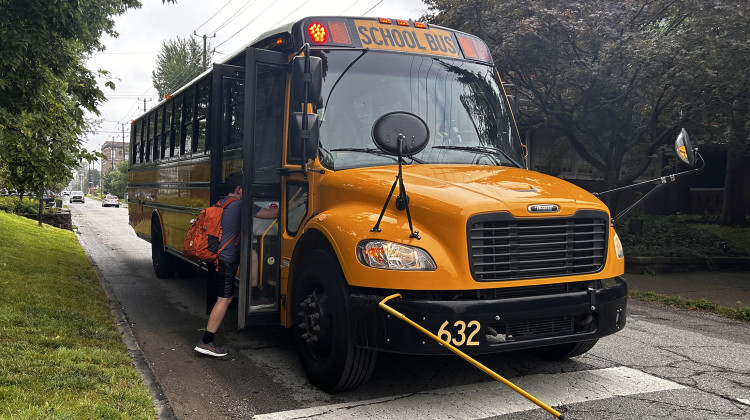
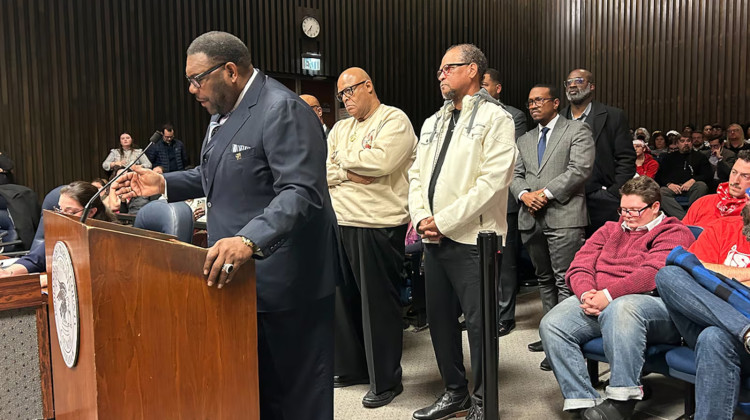
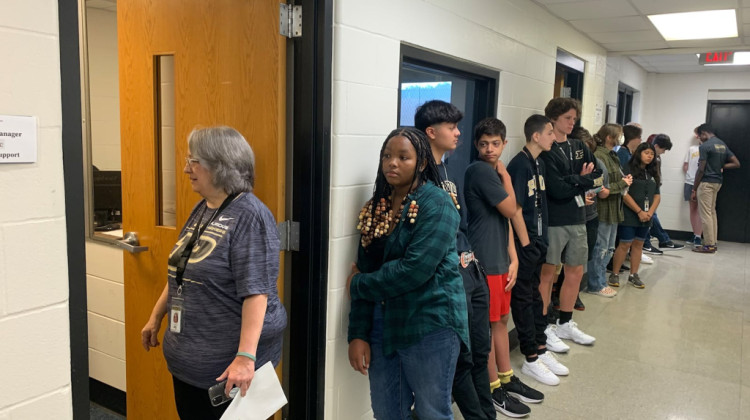

 Support WFYI. We can't do it without you.
Support WFYI. We can't do it without you.